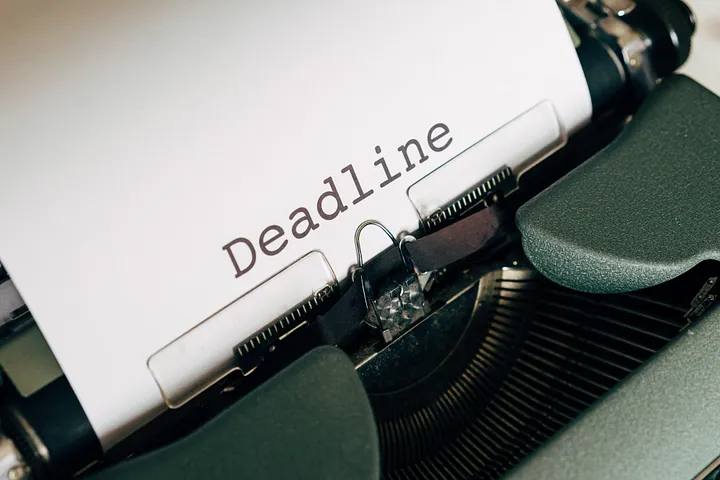Employees may experience anxiety about meeting different deadlines. Most deadlines are prescribed by a line manager, direct supervisor, or external client.
It’s always helpful to learn some stress management techniques to improve your mood and boost productivity.
Here I am going to share 6 ways to minimize deadline stress.
6- Create tiny goals
Creating tiny tasks that contribute to your big goal can help you reduce deadline stress. Always estimate the time you need to finish the project but never underestimate. Your brain will not be stressed by handling one task at a time.
I was trying to accomplish audacious goals for the past few years, but every time miserably failed until I divided the big plans into tiny ones.
I was making a huge mistake by looking at the yearly progress instead of daily or weekly tasks.
This year, I have completed four 30-day challenges in less than 2 months by dividing the long goals into tiny tasks. I wrote detailed articles on four challenges. Here are the links.
I Drank 3.78 Liters of Water Daily for 30 Days
I Read 20 Pages Daily for 30 Days
I Did 2-Minute Plank Every Day for 35 Days
5- Create earlier or fake deadlines
Yes, you read it absolutely right. I follow this strategy at work to finish the project at least 1–2 days before the deadline. That extra time helped me to revise and take out the stress part.
This technique is beneficial if you work in the corporate world under close deadlines. Start small and make it a habit to complete the project before time.
4- Stay calm
I go for outdoor walks to get some fresh air that helps me to relax. It also aids in the creation of more creative ideas in order to complete the task.
When I’m stuck trying to solve a problem and a deadline looms, I use the homework environment to my advantage and take a long, hot shower.
Showers are a great way to clear your mind and solve problems.
3- Complete the most complicated task first thing in the morning
I believe I picked up this habit from a podcast where the host stated that no job in the world is ideal.
Every job has both positive and negative aspects. Some aspects of your job, I believe, you may dislike.
I strongly advise starting the most challenging part of the project you don’t enjoy first thing in the morning before your energy levels begin to deplete or demotivate.
To meet the deadline, I divide the project into small parts and begin working on the most difficult one first. That actually helps me to be less stressed and more productive.
2- Avoid multitasking
Multitasking is a big no-no! Multitasking is actually harmful to your mental health. If you read the entire article, you’ll notice that I break down the complex problem into small chunks before moving on.
I picked this habit to work one thing at a time from Carl’s book called deep work. I often prefer to work using the Pomodoro technique to boost productivity.
Rather than attempting to complete everything simultaneously, I recommend focusing on one project and then moving on to the next. This will assist you in reducing stress.
1- Take mini-breaks
I like to work in 50-minute increments and then take a 10-minute break to listen to music, stretch, or eat a healthy snack.
That short break allows me to re-energize my mental capacity in order to tackle more complex tasks.
Breaks will assist you in increasing your productivity. Mini breaks, such as showering, can also help you clear your mind and generate new ideas for dealing with the situation.
During the 10 minute intervals, you might want to do 5–10 push-ups or stretches.
The bottom line
Everyone has a different approach for dealing with deadlines depending on the project and their personality.
I truly enjoy working under deadlines.
My cultural upbringing, I believe, has had a significant impact on the development of this habit.
There are many techniques for reducing stress while working under tight deadlines. Let’s recall the six strategies for dealing with deadlines while increasing productivity and lowering stress.
- Divide the big project into tiny parts
- Create fake deadlines or at least finish the project 1–2 days earlier
- Stay calm, take a shower, and relax
- Tackle the most challenging part first
- Absolutely no multitasking
- Incorporate mini breaks in your workloads

